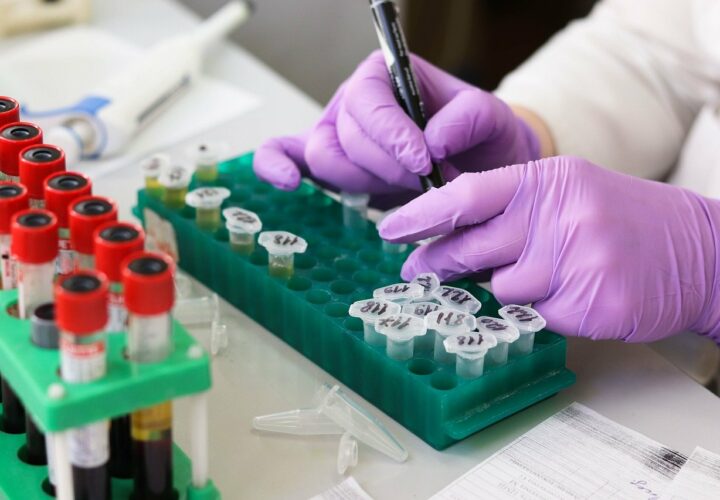A recent study suggests that sargramostim, a drug used for patients undergoing chemotherapy as well as bone marrow and blood stem cell transplants, may help fight Alzheimer’s.
Instead of developing a new drug from the ground up — a time-consuming and costly process — experts say that repurposing medications could accelerate the search for an effective Alzheimer’s therapy. Accordingly, there are dozens of repurposed drugs in clinical trials, and a recent study shows encouraging results of treating Alzheimer’s with sargramostim, a drug (marketed under its brand name Leukine) frequently used for patients after cancer treatments to help with recovery.
In a small, Phase 2 clinical trial, researchers found evidence that sargramostim was not only safe for patients with Alzheimer’s, but it may also enhance their cognition and reverse biomarker measures of the disease.
“We are cautiously optimistic,” Dr. Huntington Potter, the study’s co-author and director of the University of Colorado Alzheimer’s and Cognition Center, told Being Patient, “in the sense that this is the first drug that has shown an improvement in the participants with Alzheimer’s disease not only in their memory measure, but also in their blood measures of the disease progression in the brain.”
For the study, published in Alzheimer’s & Dementia, Potter and colleagues recruited 40 people with mild to moderate Alzheimer’s, randomly assigning half of them for injections of sargramostim and placing the other half in the placebo group. Both groups received treatment five days a week over a three-week period.
Potter and his team reported that participants who received sargramostim seemed to have improved cognitive function, scoring higher on a cognitive test — the Mini Mental State Examination — than baseline and the placebo group. Following the treatment period, these benefits continued as of a 45-day follow-up, but were no longer detected by the 90-day follow-up.
These findings follow previous research by Potter and colleagues which indicated that sargramostim may improve cognitive function among cancer patients.
The new study aimed to build on those findings while also determining the drug’s safety and efficacy for people living with Alzheimer’s. Potter and colleagues reported that sargramostim did prove to be safe and well-tolerated by the participants, with the most common side effects being headaches, skin conditions and stomach issues.
Potter and his team also set out to assess whether the drug activated patients’ innate immune system, which may help the body combat Alzheimer’s pathology, including abnormal deposits of beta-amyloid and tau proteins that are found in brains of people with the disease.
Participants receiving sargramostim did have higher levels of immune cells and inflammatory molecules, compared to baseline and the placebo group — indications that sargramostim successfully stimulated the innate immune system. Further, the group taking sargramostim showed improvements in blood measures of Alzheimer’s signature hallmarks including beta-amyloid and tau.
Why sargramostim?
Sargramsotim is a lab-engineered form of a human protein known as GM-CSF that regulates the innate immune system. Previous research, including a study by Potter and colleagues, has found that GM-CSF can reduce the build-up of beta-amyloid and improve cognitive function in mice.
According to Potter, GM-CSF’s positive effects highlight the multifaceted role of inflammation in Alzheimer’s. While inflammation has been shown to contribute to the pathology of the disease, he said some forms of inflammation may actually help protect against it. Drugs like sargramostim could harness the beneficial aspects of inflammation, Potter explained.
“The disease entities that we are trying to attack, such as Alzheimer’s disease, are complex,” he said. “It’s too simple to merely say they are inflammatory diseases. They may have inflammatory components, but attacking them may actually require a complex molecule, a natural human protein GM-CSF, which has both pro-inflammatory and anti-inflammatory actions.”
What’s next for sargramostim?
Alzheimer’s treatment clinical trials have been marked by failure after failure, but presently, there are over 150 clinical trials underway. Drug repurposing accounts for more than one third of these clinical trials, and that proportion continues to grow.
Potter and colleagues are now planning to launch a longer, Phase 2 trial of sargramostim, involving 42 patients with Alzheimer’s over a treatment period of 24 weeks. They are also studying the repurposing of other drugs to treat Alzheimer’s and related dementias.
“We think that this is the most effective way to develop a new treatment rapidly because all of the safety has already been established with those molecules,” Potter said of drug repurposing. “That’s what we did with Leukine … and we have several other drugs in the pipeline that look very promising.”




Are there any trials using Rapamycin? The are numerous articles about its effectiveness but I have not seen any research studies.